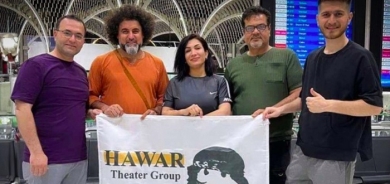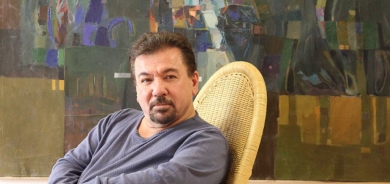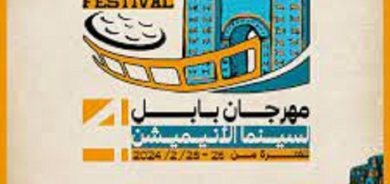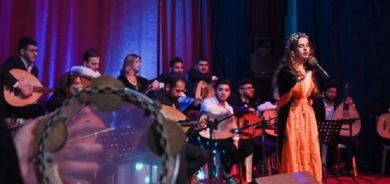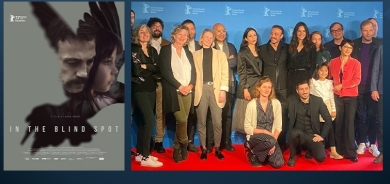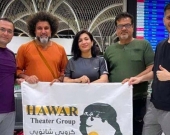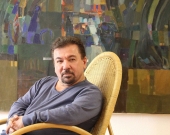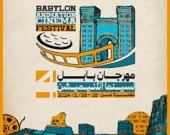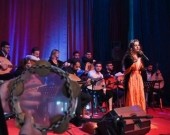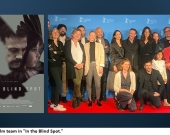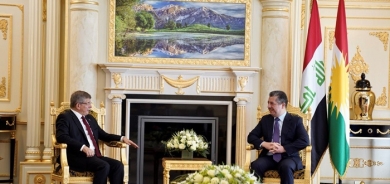Kurdish Music Videos: A Questionable Attempt at Modernity

LONDON - My knowledge of contemporary Kurdish music is limited to the snippets I catch on television when I visit my grandmother, or the YouTube videos that my father sends if they’ve created a buzz online or in the newspapers.
I grew up listening to the Kamkars. To me, and many others, they are the epitome of Kurdish high culture, music as art. Their talent is so widely acclaimed that they performed at the Nobel Peace Prize ceremony in Oslo in 2008. If ever someone asks what Kurdish music sounds like, I send them links to a few Kamkar songs.
But I’m old-fashioned and out of touch, it seems. Today’s music is more about the videos than the songs, and more about the outfits than the lyrics.
While there is a slew of young musicians today who cater to local tastes and cultural norms (Chopi Fateh and Mahdi Raza come to mind) increasingly, there are a number of artists that seem set on shocking Kurdish sensibilities.
I’m all for cultural development and experimentation. But listening to these songs, while watching the accompanying music videos, more offends the senses than excites them. They are simply cheap imitations of the Arabic music videos, which themselves are imitations of the Western offerings.
Most of these new Kurdish music videos contain a balding, pot-bellied, middle-aged man swaying to the side and singing to the synthesized melodies. Beside him, a host of young women dance and gyrate without much flair. The entire affair is embarrassing to watch.
Then there are the young Kurdish men, who, having been exposed to hip hop and rap beats wherever they grew up outside of Kurdistan, now rap in Kurdish or English, thinking they have as much talent as Jay Z. These videos are cringe-worthy, to say the least.
But perhaps the most controversial are the young songstresses, inspired by the likes of Shakira and Rihanna.
When Dashni Morad’s provocative music videos hit the screens, they went viral among a people more accustomed to seeing images of waterfalls and valleys accompanying songs about love.
The latest songstress to grab media attention and death threats from Islamist groups is Helly Luv, who much like the British-born Sri Lankan rapper M.I.A projects a gangster image of a tough and sexy singer. The music video for her debut single Risk it all sees her pose suggestively with a couple of lions, earning her the nickname “Lion Girl.”
Both Dashni Morad and Helly Luv, who both grew up in Europe, are very clearly influenced by Shakira and Beyonce, from their wardrobe choices to the dance moves they perform in their videos. Their songs and even their style of singing are more Western than Kurdish.
Their fame is not based so much on their talent, but for their sheer audaciousness. They are unable to emulate their fame so readily outside of Kurdistan, where they blend in with the thousands of other singers who dress the same way and sing the same pop drivel.
But in Kurdistan, they cause a stir because the people are unaccustomed to seeing such sexualized images of women parading around in locations like the Citadel in Erbil, or the dusty roads of a Kurdish village.
The outfits that the women wear in all of these music videos, their provocative dance moves, and interactions with the men, may seem tame when compared to a Lady Gaga video. But for the socially conservative Kurdish society, they are taking it a step too far, too quickly.
Some may argue that they are helping to empower women, and that these music videos are a demonstration of modernization. That, however, is nonsense.
Importing a culture that has no grounds in Kurdistan, that is essentially sexist and demeaning in its portrayal of women, is problematic. To say it is a step towards modernity is to take an ignorant view of what modernity means.
While it would be beneficial to import aspects of Western culture like equality, democracy and the recognition of basic human rights to aid the society’s steps towards modernization, this blind emulation of the questionable aspects feeds into the Islamist rhetoric of the dangers of Western culture. Islamist leaders will preach and encourage the rejection of any and all forms of modernization, on the grounds that it is Western and therefore evil. Just look at Iran and Saudi Arabia.
Kurdistan is a conservative society, one that is quickly opening up to the outside world. Amid the construction of new buildings and a prosperous, oil-rich future, there are two different social parallels that have begun to emerge: One influenced by the Western culture that has undergone the sexual revolution; the other a traditional society, deeply rooted in cultural and religious customs that is unyielding to displays of affection or flesh. The two do not sit comfortably side by side.
On the whole, though, what grates me the most about these singers is their complete disregard of Kurdistan’s deeply-rich cultural and musical history that stretch back thousands of years. These “artists” should be drawing their influence from this heritage and not simply copying what they see on MTV.
Rudaw


